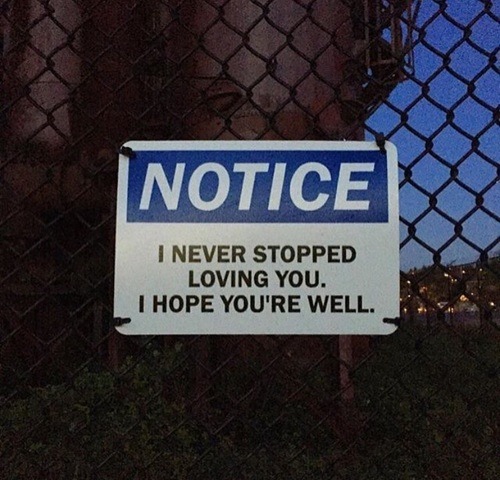Text
Why people get trapped by Emotional Abusers & Why it’s not their fault
(these apply to platonic and romantic relationships)

1. Attachment
The Emotional Abuser gives you attention: they make you feel flattered, loved and important. You start to believe that they genuinely care about you. They might even think that they do by themselves since they internally justify all their doings. Normally this kind of attachment would lead to a healthy bonding and a closer relationship. With the Emotional Abuser it leads to some levels of addiction and dependency on the victim’s part which is never their fault. Emotional Abuser’s behaviour exploits normal emotional bonding to another human being.
2. Guilt
In some point in the relationship you notice that it’s all about their needs. The Abuser might do something that hurts your feelings and bringing it up leads them to reason why it’s actually your fault and why you have to take responsibility for it. They make up convincing excuses why it’s not their job to do it, why it’s absolutely unreasonable of you to ask for it and so on. In other words: they Guilt-trip you. The Emotional Abuser believes they have no responsibility for their behaviour or feelings. If they feel uncomfortable by something in the relationship they will manipulate you to take the blame instead of trying to work things out. Guilt-tripping makes the victim submit and erodes their sense of emotional and physical boundaries since they are made to believe it’s their job to cater on Abuser’s needs.
3. Cognitive dissonance
After the idealization pace the Emotional Abuser will move to a devaluing pace. Catering to their needs is not enough anymore and you feel you can’t do anything right no matter what you do. The pace starts when the Abuser feels you are getting emotionally too close and/or you are trying to hold them accountable for something they have done. Emotional Abusers are afraid of responsibility and in some cases intimacy so they will try to push you away. They use manipulation: Gaslighting and Guilt-tripping to force you into silence and to take all the responsibility for the relationship. They give you Silent Treatment which is justified by some clever excuses. Emotional Abusers believe they are entitled to absolute emotional comfort even when it means abusing other people.
Because you remember how well they used to treat you, your mind has a hard time accepting they are not the person you thought they were. In fact you might start to make excuses for them in your head because they have manipulated you to think nothing is their fault. It is extremely difficult to get away from the Abuser’s emotional trap because they take advantage of the victim’s emotional bonding to them and give false hope that the relationship could be “fixed”. You are misled into thinking that if you just learn not to be so “needy” and “selfish”, the Abuser will reward you with the loving behaviour they demonstrated in the beginning.
Aftermath
The Emotional Abuser has no intention to take responsibility for what their abusive behaviour has caused you because they have normalized and justified it in their head. Not all of the Abusers are so sure of themselves but need a lot of internal convincing and validation from others so that they can feel good about themselves which is their goal: not having to deal with responsibility or emotional labour. After all Emotional Abusers are not Disney villains but people who are so selfish that they lack of motivation to learn how to not hurt people.
There are two ways how the trap can break: the victim quits all contact with the Abuser or the Abuser leaves the victim. The latter one occurs if the Emotional Abuser feels they have to deal with too much because of the victim. The Abuser might feel threatened by the victim if the victim is making the Abuser feel bad about themself by calling out their abusive behaviour. The Emotional Abuser thinks that they are actually the victim in the relationship because the real Victim is making them feel bad and scared. The Abuser is genuinely afraid that they would have to deal with negative emotions that taking responsibility would require.
In the end the Emotional Abuser ends the relationship with some dramatic note in which they project all their feelings into the victim: you are the abuser, you have harmed them, you have threatened them. This is their way of securing their own emotional well-being as they refuse to acknowledge the reality. Just remember that it was NOT your fault and you are not responsible for their horrible behaviour. While mutually harmful and violent relationships can exist abusive relationships are based on a power imbalance and therefore there is no such a thing as “mutually abusive”. You are nothing like your abuser.
46K notes
·
View notes
Quote
1. it’s not always loud. it’s not always obvious. the poison doesn’t always hit you like a gunshot. sometimes, it seeps in quietly, slowly. sometimes, you don’t even know it was ever there until months after. 2. love is not draining. love is not tiring. this is not how it is supposed to be. 3. apologies are like band-aids, when what you really need is stitches– they don’t actually fix anything long-term. soon enough, you’ll be bleeding again, but they will never give you what you really need. 4. this is not your fault. you did not turn them into this. this is how they are, how they’ve always been. you can’t blame yourself. 5. there will be less good days than bad days but the good days will be so amazing that it will feel like everything is better than it actually is. your mind is playing tricks on itself and your heart is trying to convince itself that it made the right choice. 6. they do not love you. they can not love you. this is not love. 7. you’re not wrong for wanting to run, so do it. 8. you will let them come back again and again before you realize that they only change long enough for you to let them in one more time. 9. it’s okay to be selfish and leave. there is never any crime in putting yourself first. when they tell you otherwise, don’t believe them. don’t let them tear you down. they want to knock you off your feet so that they can keep you on the ground. 10. after, you will look back on this regretting all the chances given, all the time wasted. you will think about what you know now, and what you would do differently if given the chance. part of you will say that you would never have even given them the time of day, but another part of you, the larger one, will say that even after everything, you wouldn’t have changed a thing. and that’s the part that is right.
10 facts about toxic relationships (what i wish i’d known) -c.h. // instagram: @evanescent.love (via @poeticaffinity)
8K notes
·
View notes















